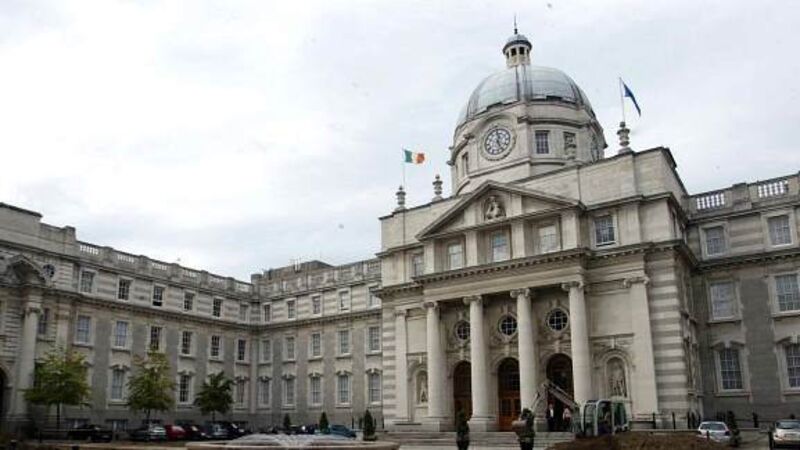Smaller parties sceptical about Fianna Fáil and Fine Gael plan

The Dáil’s three smaller parties all remain committed to reading the Fianna Fáil and Fine Gael policy document, but doubt has crept in due to the lack of concrete proposals contained within.
The document will be formally circulated to the Green Party, Labour and the Social Democrats tomorrow, as Micheál Martin and Leo Varadkar seek a "third pillar" to build a stable government which can oversee the country’’s recovery from the Covid-19 crisis.
However, sources in all three say that any agreement will be based on more specific plans than those which have been floated thus far. One member of a smaller party said that the lack of a mention of housing in Fine Gael’’s internal policy priorities "made the whole thing hard to take seriously".
The document is a broad outline of what a government might look like, with "equal partnership" between Fine Gael and Fianna Fáil at its core.
All three parties know that there will be incentives for them to join the coalition - a Fianna Fáil source called it a "carrot, not stick approach".
However, there is much reticence among all three for a number of reasons, chiefly the need to negotiate lasting commitments with politically divergent partners.
"It will be difficult to see how we agree a plan for actual policies beyond aspirational pages," said one source.
Speaking to Newstalk FM today, Social Democrats co-leader Roisín Shortall echoed that belief. She pointed out that there are fundamental differences between her party and Fine Gael in particular.
“There’s no denying that fact - we are different parties, and we take a very different view of the world and a different approach to solving problems," she said.
“We would regard ourselves as one of the main parties of public service.
We believe the State should be centrally involved in the provision of healthcare, in the provision of childcare, in affordable housing - all of those key public services that are so central to people’s lives.
Ms Shortall pointed to leaks about a plan in the document to trial community childcare as evidence that negotiations will be difficult.
“The Government is apparently now in this document talking about trialling State provision of childcare - I mean, that’s exceptionally weak," she said.
"We’re not really interested in pilot projects or trying things out - we need a complete step-change in how we provide public services."
That same hesitance is being felt across smaller parties, whose TDs are wondering if their policy priorities would be the first ones to be thrown out in the new government.
"You look at the pilot childcare plan," said one TD.
"You wonder ’’Is this going to be the next five years? Where anything we want gets a pilot or a scoping committee before Fianna Fáil and Fine Gael revert to type?’’"
The smaller parties are also unimpressed at the length of time it has taken to get the document into their hands.
It is felt that in the midst of a crisis, negotiations between all parties should have been concluded over the Easter weekend, but the Fianna Fáil and Fine Gael document was only hammered out over Sunday and Monday, before the party leaders’’ agreement on Tuesday.





